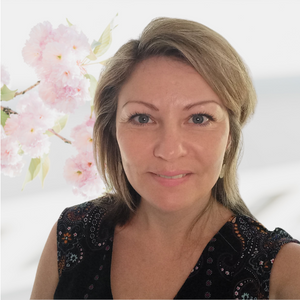Attention Deficit Hyperactivity Disorder (previously also known as ADHD) received greater attention in recent years and is widely spoken about.
As mentioned in my previous articles, ADHD is a topic which is close to my heart and I have great compassion for people who are born with this condition.
I work with adult population, and people who were either diagnosed or suspect they have ADHD come to see me after many years of suffering and struggling in many life areas such as: relationships, self-esteem, career, family, parenting, study, hobbies and general trust in themselves, their emotions and their abilities.
This is understandable, taking into account the fact that so far ADHD has been mainly considered and treated as a disorder, an invisible disability that impacts person’s life in negative ways causing an impairment. This is hard to hear, for a person who is getting the diagnosis or a loved one of a person with ADHD.
However, there is a new framing and perspective, a new way of looking at ADHD, understanding and treating ADHD. Psychiatrist Dr Bill Dodson has been pointing out that a person with ADHD is fully capable of functioning well and achieving amazing results in all these life areas mentioned before, however under specific conditions. He describes the nervous system of people with ADHD as a second type of nervous system. This nervous system is activated by: interest, passion, urgency, challenge and novelty. This is in opposition to type 1 nervous system (of neurotypical people, people without ADHD) which is activated by importance and consequences.
This reframing has been helpful to many clients I work with as they were able to look at themselves as functioning, whole, capable people who need certain environments and conditions to thrive, as opposed to viewing themselves as broken and disabled. It is similar to putting your potted flower who needs sun in a sunny area, as opposed to shoving it in a dark corner expecting it to grow.
It is important to treat ourselves with compassion and understanding of our strengths and limitations and make choices accordingly. However, it also means that we need to take an active role in our well-being. For example:
- Learn how you work: what type of nervous system you have, what are your triggers, what charges and motivates/depletes and overwhelms you
- Identify your needs: need for emotional support, need for social connection, need for healing, need for rest- what does your mind and body try to tell you?
- Learn new strategies to manage difficult symptoms- research, read and practice
- Ask for help and support- we can’t always do it all by ourselves, and we don’t have to
Knowing the type of your nervous system and how it operates, puts you in the ‘driver seat’ position of taking the responsibility of taking care of it and creating the best life for yourself and people who love you. Use your creativity to create opportunities and situations that involve the five activating principles:
- INTEREST (follow your attention)
- PASSION (engage in what you love and spend time in doing what you enjoy)
- NOVELTY (allow and create new experiences, and frequent change of atmosphere and environments)
- CHALLENGE (create adequate challenges in fun and light vibe, challenge yourself in everyday small things)
- URGENCY (create artificial urgency/imagined or external accountability)
Finally, include the ‘triple C’ elements in your life:
- Commitment (to your well-being, which in turn will benefit others around you),
- Compassion and
- Creativity.
Author: Ilana Gorovoy, B.Arts (Psych), B. Arts (Hons.)(Psychology), MPsych (Couns.)
 With a Master’s in Counselling, Brisbane Psychologist Ilana Gorovoy draws on therapeutic approaches such as Cognitive Behavioural Therapy, Existential and Strengths-based approaches, Person-Centred and Positive Psychology, to assist her clients to become conscious of their strengths and difficulties, design and reach their goals, live a life of meaning and purpose, and reach their full potential.
With a Master’s in Counselling, Brisbane Psychologist Ilana Gorovoy draws on therapeutic approaches such as Cognitive Behavioural Therapy, Existential and Strengths-based approaches, Person-Centred and Positive Psychology, to assist her clients to become conscious of their strengths and difficulties, design and reach their goals, live a life of meaning and purpose, and reach their full potential.
To make an appointment with Brisbane Psychologist Ilana Gorovoy, try Online Booking. Alternatively, you can call M1 Psychology on (07) 3088 5422.